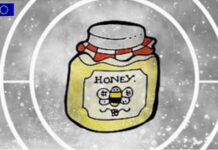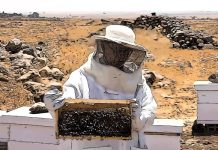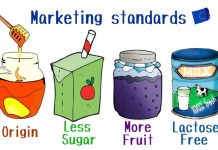II Sub-Committee SC 19(bee products) of the Technical Working Committee TC 34(food products) of ISO(International Organization for Standardization) has begun work on developing an international standard on honey.
The project to start work raised the concerns of a Bavarian MEP from theEuropean People’s Party Group(EPP), Marlene Mortler. Which raised the bogeyman of China and Chinese honey.
European Commissioner for Agriculture and Rural Development Janusz Wojciechowski has therefore reassured the Strasbourg Parliament about the transparency of ISO’s work, in which experts from national standards bodies participate.
A missed opportunity to address the crucial issue, namely, the causes of the decline in beekeeping production in the Old Continent. Pesticides, pesticides, pesticides. So much talk and so little action for the protection of biodiversity and ecosystems in Europe.
1) European Parliament, question on honey
On 4/20/22 MEP Marlene Mortler, a member of the European Parliament’s AGRI Committee, submitted a question on honey to the Brussels executive. Noting that ‘for several consecutive years, the honey harvest in many EU member states has been average to poor,’ the MEP notes that the European market is ‘vulnerable to competition from importing countries. Importing countries often have different or no national standards for declaring and designating what constitutes bee honey.’
According to Hon. Marlene Mortler, the ongoing ‘negotiations’ aimed at establishing an ISO standard for honey would be ‘chaired’ by the People’s Republic of China. The MEP then expressed concern to the European Commission ‘That one ISO standard for honey could give rise to two different standards for honey that would apply to imports into the EU’. Theorizing a possible ‘conflict with definitions of bee honey within the EU and with national honey standards,’ the MEP thus asked ‘what position will the Commission take‘. (1)
2) European Commission, response to question.
Commissioner Janusz Wojciechowski answered this question on 5/25/22 to clarify to the European Parliament the different areas of international law and policies on the one hand, and technical standardization systems on the other. (2)
2.1) ISO/AWI 24607, initiation of work on honey.
On 17.8.21, the ISO Sub-Committee dedicated to beekeeping products approved the proposal to initiate the procedure to develop an international standard on honey. The work is still at an early stage, hence the AWI(approved work item) acronym that accompanies ISO/AWI 24607 coding. The scope was agreed upon in the following terms.
‘This standard applies to all honeys produced by honey bees (Apis ssp.) and covers all types of honey presentation that are processed and ultimately intended for direct consumption. This includes honey packaged for sale in bulk containers, which can be repackaged into packages for retail sale. The standard covers honey for industrial uses‘. (3)
2.2) International standards vs. mandatory regulations
ISO – as Commissioner Janusz Wojciechowski himself reiterates – ”is an independent nongovernmental organization and has no regulatory authority. ISO standards are developed internationally. The creation of an ISO standard is a transparent process in which national standards organizations have a voice. ISO standards are adopted by consensus. They are not binding.'(2) The application of these standards is in fact voluntary, and their third-party certification is a plus over compliance with mandatory standards.
‘Instead, honey imported and marketed in the EU must meet the requirements of Council Directive 2001/110 on honey [implemented in Italy by Legislative Decree 179/04. See notes 4,5]. The directive takes into account the existing Codex Alimentarius standard for honey. [6] Adjusted where appropriate to EU-specific requirements.
A potential conflict between the definition of bee honey in a newly established ISO standard, Codex Alimentarius, and Council Directive 2001/110 would become relevant only after finalization of that ISO standard.’ (2)
3) Honey, global and EU production.
China is the world’s leading honey producer (458.1 thousand tons), followed at a distance by Turkey (104.8), Iran (79.96), Argentina (74.4 k t), and Ukraine (68.03). This is followed by the U.S. (66.95), Russia (66.37), India (62.13), Mexico (54.17), and Brazil (51.51. Statista, 2020 data. See footnote 7).
EU member states produce a total of 275,000 tons of honey (European Commission, data 2018-2021). Production in the EU is reported to have increased by 15 percent in the past five years but is still far from covering its consumption, which is 40 percent dependent on imports. (8)
3.1) Honey in EU and Italy, pesticide risk.
The risks of declining production in the EU and Italy are closely linked to the contamination of ecosystems by pesticides, neonicotinoids in particular. Which, as it turns out, are mainly responsible for Colony Collapse Disorder on which the disappearance of pollinating insects depends (9,10).
‘Save the Bees and Beekeepers,’ the European Citizens’ Initiative, has collected 1.2 million signatures. (11). But the European Commission has not yet fulfilled its duties in this regard, nor has it followed up on the European Parliament’s calls to implement the reduction targets for pesticides and other agrochemicals announced in the EU Farm to Fork strategy. (12)
3.2) Potential supply risks
The current tightening of diplomatic relations between the U.S., UK, EU and the rest of the world could also lead to supply risks in the medium term at large industrial honey-producing countries.
Duties and/or export bans are the logical consequence of economic sanctions against various countries. Who can thus protect their markets from the price volatility that instead blazes in global listings.
4) Interim Conclusions
The authenticity of honey remains entrusted to compliance with the binding rules-in the EU as in any other country-inspired by the criteria defined by Codex Alimentarius (FAO, WHO) for more than 40 years. (6)
Instead, the enforcement of these rules is left to the responsibility of operators and the effectiveness of official controls, which even in the EU unfortunately, as we have seen, tend to be lacking. (14)
#SDG2, zero hunger. #SDG10, reduce inequality within and among countries. #SDG12, responsible consumption and production.
Dario Dongo
Notes
(1) European Parliament. Question signed by Hon. Marlene Mortler to the Commission, 20.4.22 (E-001500/2022). https://www.europarl.europa.eu/doceo/document/E-9-2022-001500_EN.html
(2) European Commission. Reply 25.5.22 to parliamentary question E-001500/2022, https://www.europarl.europa.eu/doceo/document/E-9-2022-001500-ASW_EN.html
(3) ISO/AWI 24607. Honey – Specifications. General information. https://www.iso.org/standard/79065.html
(4) Dir. 2001/110/EC, concerning honey. Text updated 6/23/14. https://eur-lex.europa.eu/legal-content/IT/TXT/?qid=1653765353361&uri=CELEX%3A32001L0110
(5) Dario Dongo. Honey, identity on the label. GIFT (Great Italian Food Trade). 13.21.18, https://www.greatitalianfoodtrade.it/miele/miele-identità-in-etichetta
(6) FAO. Codex Alimentarius Standard for Honey. 12-1981. Rev. 1, 1987. https://www.fao.org/3/w0076e/w0076e30.htm
(7) M. Shahbandeh. Major producers of honey worldwide 2020. Statesman. 3/28/22, https://www.statista.com/statistics/812172/global-top-producers-of-honey/
(8) Beekeeping sector: results of the pilot study on honey bee selection. European Commission. 3/15/22, https://ec.europa.eu/info/news/beekeeping-sector-results-pilot-study-honey-bee-selection-2022-mar-15_en
(9) Guido Cortese, Dario Dongo. Honey, beekeepers and bees in Italy. GIFT(Great Italian Food Trade). 4.2.19, https://www.greatitalianfoodtrade.it/progresso/miele-apicoltori-e-api-in-italia
(10) Dario Dongo. US bee slaughter, fake news about almonds and neonicotinoids. GIFT(Great Italian Food Trade). 29.1.20, https://www.greatitalianfoodtrade.it/consum-attori/strage-di-api-in-usa-fake-news-su-mandorle-e-neonicotinoidi
(11) Dario Dongo, Guido Cortese. Save The Bees! The reasons for the European citizens’ initiative. GIFT (Great Italian Food Trade). 6/15/19, https://www.greatitalianfoodtrade.it/progresso/salviamo-le-api-le-ragioni-dell-iniziativa-dei-cittadini-europei
(12) Marta Strinati. ICE Save the Bees has collected over one million signatures. GIFT (Great Italian Food Trade). 9.10.21, https://www.greatitalianfoodtrade.it/consum-attori/l-ice-salviamo-le-api-ha-raccolto-oltre-un-milione-di-firme
(13) Dario Dongo. Farm to Fork, resolution in Strasbourg. Focus on pesticides and fertilizers. GIFT (Great Italian Food Trade). 10/23/21, https://www.greatitalianfoodtrade.it/progresso/farm-to-fork-risoluzione-a-strasburgo-focus-su-pesticidi-e-fertilizzanti
(14) Marta Strinati. Fraud in honey, from sugaring to misrepresented origin. French test. GIFT (Great Italian Food Trade). 10/28/21, https://www.greatitalianfoodtrade.it/consum-attori/le-frodi-nel-miele-dallo-zuccheraggio-all-origine-travisata-test-francese
Dario Dongo, lawyer and journalist, PhD in international food law, founder of WIISE (FARE - GIFT - Food Times) and Égalité.








